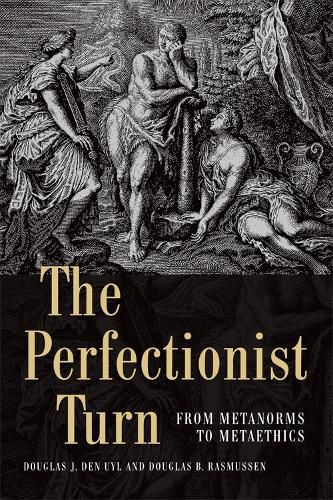Readings Newsletter
Become a Readings Member to make your shopping experience even easier.
Sign in or sign up for free!
You’re not far away from qualifying for FREE standard shipping within Australia
You’ve qualified for FREE standard shipping within Australia
The cart is loading…






Contemporary political philosophy - especially in the works of Martha Nussbaum, John Rawls and Amartya Sen - has assumed that it can separate itself off from other philosophical positions and frameworks. In this book, Den Uyl and Rasmussen challenge this trend by moving from the liberalism they advocate in their earlier work to what they call “individualistic perfectionism’ in ethics. They continue to challenge the assumption that a neo-Aristotelian ethical framework cannot support a liberal, non-perfectionist political theory by filling in the nature of the perfectionist ethical approach utilised in their previous political theorising.
By developing the central features and principles of individualistic perfectionism they show that it is a major and powerful alternative to much contemporary ethical thinking - particularly to constructivism - and that it is capable of overcoming standard objections to perfectionism.
$9.00 standard shipping within Australia
FREE standard shipping within Australia for orders over $100.00
Express & International shipping calculated at checkout
Contemporary political philosophy - especially in the works of Martha Nussbaum, John Rawls and Amartya Sen - has assumed that it can separate itself off from other philosophical positions and frameworks. In this book, Den Uyl and Rasmussen challenge this trend by moving from the liberalism they advocate in their earlier work to what they call “individualistic perfectionism’ in ethics. They continue to challenge the assumption that a neo-Aristotelian ethical framework cannot support a liberal, non-perfectionist political theory by filling in the nature of the perfectionist ethical approach utilised in their previous political theorising.
By developing the central features and principles of individualistic perfectionism they show that it is a major and powerful alternative to much contemporary ethical thinking - particularly to constructivism - and that it is capable of overcoming standard objections to perfectionism.